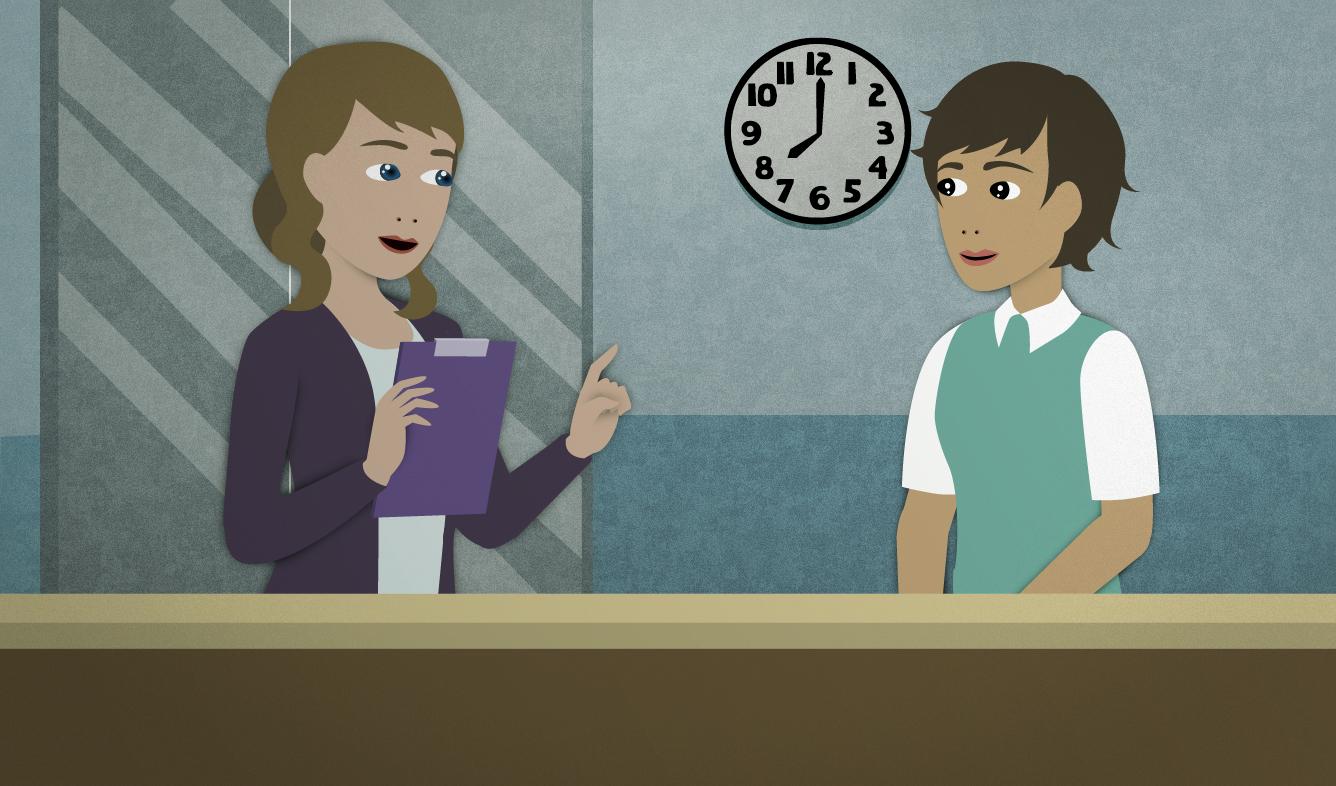“You need to arrive to the office at least fifteen minutes before the start of your shift.”
You're a manager at a bank. There's a new teller who just started working there. You're explaining the bank's rules to her. You tell her when to get to work.
You need to arrive to the office at least fifteen minutes before the start of your shift.
Want Video and Sound? Follow us on YouTube

a shift
A "shift" is the period of time that an employee has to work. Jobs that have "shifts" are usually paid by the hour. One shift is usually between 4 to 16 hours, and can sometimes have a name like:
- the late shift
- the morning shift
- the graveyard shift (a creative name for a shift that starts late at night and goes until early morning)
The verb "work" is sometimes used to talk about a shift. In a job with a shift system, you might hear an employee say:
"I'm working the afternoon shift tomorrow."
You need to (do something)
"You need to ___" is a really strong and direct way of giving someone advice or orders. It's usually used by parents, teachers, and bosses. It's usually used when they're angry or annoyed:
You need to stop talking and pay attention.
You need to get the account manager on the phone and tell him you're sorry, but you made a mistake.
arrive to (somewhere)
"Arrive to ___" is technically a mistake, but it's a mistake that English speakers often make. The correct form is "arrive at ___":
You need to arrive at the office at least fifteen minutes before the start of your shift.
To "arrive" means to get to a place. "Arrive" is a little bit more formal than "get to". So when telling somene a story, you might say:
I got to the party at around nine.
But if you were in a courtroom, telling a judge or lawyer about something that happened, you might say this:
I arrived at the party at nine o'clock p.m.
at least (a number) before (something)
You use the phrase "at least" to talk about the smallest or lowest number of something:
There were at least 20 people waiting in line already when I got there.
You can also use "at least" to talk about time:
I try to get to the airport at least 2 hours before the flight leaves.
This means that the speaker tries to arrive at the airport 2.5 or 3 hours before the flight leaves, but certainly no later than 2 hours before the flight.
